Photo: JMEnternational/Redferns
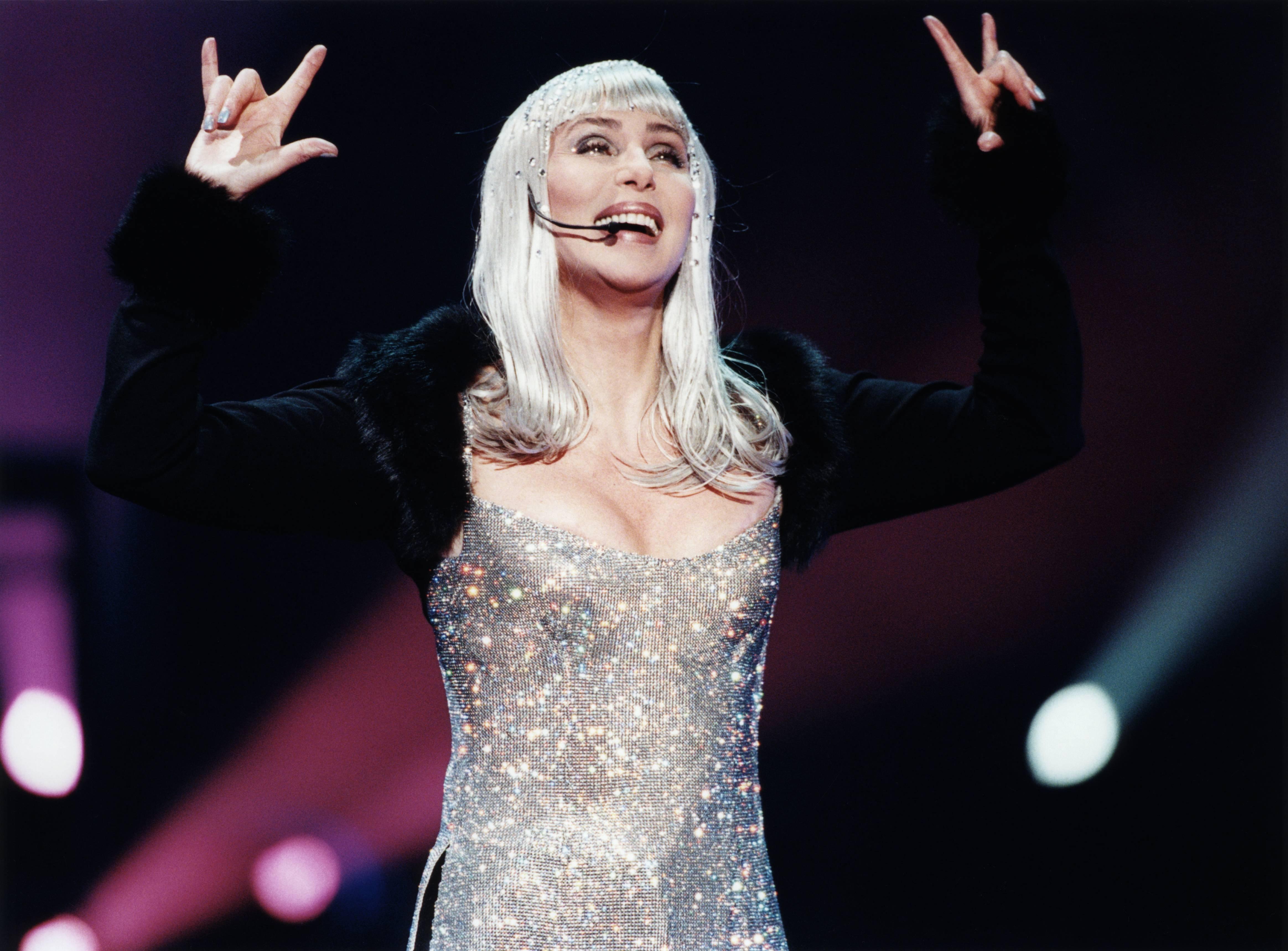
list
10 Ways Cher's "Believe" Changed Pop Music
As Cher's GRAMMY-winning hit celebrates its 25th anniversary, blast "Believe" and dig into the many ways it became one of pop's all-time classics.
The incomparable Cher had already achieved iconic status long before she dropped the title track from her 22nd studio effort, Believe, at the tail end of 1998. After all, this was an artist who'd forged one of the most successful pop duos of the '60s, scored a record-breaking trio of number ones in the '70s, and reinvented herself as an MTV goddess in the '80s. Not to mention her contributions outside of music: the hit variety shows, Broadway runs, and Hollywood moonlighting — the latter of which saw her win an Oscar.
But the success of "Believe" was still unlike anything else Cher had achieved during her illustrious 35 years in the business. It reached No. 1 in 21 different countries across the globe (including a four-week stint at the top of the Billboard Hot 100 in the U.S.), sold 11 million copies, and cleaned up at everything from the International Dance Music Awards to the Ivor Novellos. For a good 12 months, it was practically impossible to avoid hearing its dance-pop beats, lovelorn lyrics and, of course, that famous robotic vocal effect.
But "Believe" didn't just significantly impact Cher's already glittering career — it also changed the face of pop music as we know it. From inspiring other divas to get their groove on to pioneering a piece of now-ubiquitous studio technique, take a look at 10 ways "Believe" impacted pop.
It Smashed Multiple Chart Records
It would almost be quicker to list which chart records "Believe" didn't completely obliterate. The song spent 21 weeks atop Billboard's Hot Dance Singles Sales, and was still in the Top 10 a full year later. It was also crowned the year-end No. 1 on both the Dance Club Songs and Hot 100 charts. And it produced the longest-ever gap between chart-toppers on the latter — 33 years and seven months, to be exact — as Cher's first No. 1 on the chart came in 1965 with her Sonny Bono duet "I Got You Babe."
"Believe" was just as successful across the pond, beating George Michael, U2, Culture Club, and Alanis Morisette in a famous five-way battle for No. 1. And with 1.8 million copies sold, it's still the U.K.'s highest-selling single by a female performer.
It Inspired Several Divas To Dance
Cher had initially resisted Warner UK label boss Rob Dickins' idea to pursue a dance direction, reportedly arguing that the genre wasn't conducive to "real songs." It's unlikely many of her peers took much persuading, however, after witnessing the monumental success of "Believe."
In fact, pretty much every pop diva on the other side of 50 seemed to take to the dance floor over the following 12 months: see Diana Ross' "Not Over You Yet," Tina Turner's "When the Heartache Is Over," and Donna Summer's "I Will Go With You (Con Te Partiro)." Madonna (Confessions on a Dancefloor), Kylie Minogue (Tension), and Cyndi Lauper (Bring Ya to the Brink) have all since proved middle age and dance music needn't be mutually exclusive terms with entire albums tailor-made for the clubs.
It Finally Gave Cher A Grammy
It seems hard to believe that Cher had to wait until the turn of the millennium to pick up her first GRAMMY. The pop veteran had previously been nominated alongside then-husband Sonny Bono in the Best New Artist category in 1966. The pair also received a nod in the Best Pop Performance by a Duo or Group in 1972 for "All I Ever Need Is You," the same year Cher was recognized as a solo artist with a Best Female Pop Vocal Performance nomination for "Gypsys, Tramps and Thieves." But on all three occasions, Cher went home empty-handed.
The star finally emerged victorious in 2000, however, when "Believe" won Best Dance Recording. (The song and same-named parent LP had picked up nods for Record of the Year and Best Pop Vocal Album, respectively, too). Peter Rauhofer was also crowned Best Remixer of the Year for his work on the track under the guise of Club 69.
It Paved The Way For An Exciting '00s Hit Factory
Nine different people, including Cher herself, are given songwriting/production credits on "Believe." But the most interesting behind-the-scenes name is Brian Higgins, the man who penned an early version of the track a full eight years before it was released. A virtual unknown when the finished product finally arrived, Higgins would go on to shape the following decade of British pop music thanks to his pioneering work as part of the production powerhouse known as Xenomania.
Best-known for guiding the career of their ultimate muses, Girls Aloud, the team also carved out weird and wonderful singles for Sugababes, The Saturdays, and Alesha Dixon.Pet Shop Boys, Kylie Minogue, and Saint Etienne were just a few of the more established names who turned to Xenomania for hit-making assistance, too.
It Made Cher Relevant Again
Cher looked to have been consigned to heritage act status before "Believe" came to the rescue. She'd only scored one U.S. Top 10 hit in the 1990s ("Just Like Jesse James") and that was at the very start of the decade; her last studio effort, covers album It's A Man's World, had peaked at a lowly No. 64 on the Billboard 200. But Cher isn't known as a comeback queen for nothing. The Believe campaign not only saved her from the musical wilderness, but it also kickstarted the most consistent, if undoubtedly sporadic, chapter of her career.
Indeed, although "Strong Enough" and "Song for the Lonely" are her only Hot 100 entries since (No. 57 and 85, respectively), 2001's Living Proof, 2013's Closer to the Truth, and 2018's ABBA tribute Dancing Queen have all reached the top 10 of the Billboard 200. And while Cher was always a powerful live draw, the Believe era took things to new heights: 2002's long-running (and misleadingly-named) The Farewell Tour, grossed $200 million across a whopping 325 dates to become the highest-grossing concert series by a female artist at the time.
It Proved Age Ain't Nothin' But A Number
Bette Midler, Aretha Franklin, and Tina Turner had all previously reached the top of the Hot 100 in their forties. But no female artist had ever achieved such a feat until "Believe" came along. Cher was aged 52 years and nine months when the dance-pop anthem took her number one tally to four in March 1999. And while the annual return of "All I Want for Christmas Is You" saw a 53-year-old Mariah Carey surpass this milestone in 2022, Cher can still lay claim to being the oldest chart-topping woman with a newly released song.
The star will have to score a fifth, however, if she's to break the all-time record: Louis Armstrong was three months shy of his 63rd birthday when he knocked The Beatles off pole position with 1963's "Hello Dolly."
It Introduced The World To Auto-Tune
According to Pitchfork, a remarkable 99 percent of all contemporary pop music utilizes the pitch-altering recording technique known as Auto-Tune. And that's pretty much all down to The Cher Effect. Although designed to subtly correct a wayward vocal, the producers of "Believe" decided to make it blatantly obvious that studio trickery had been at play, transforming one of pop's most easily identifiable voices into that of a wobbly android.
Cher had to fight to keep the song's unique selling point, telling unconvinced label bosses they'd have to remove it "over my dead body." And her instinct proved to be right. The pioneering use of Auto-Tune was undoubtedly the catalyst for the song's phenomenal success, ultimately paving the way for everyone fromLil Wayne andT-Pain toDaft Punk andBlack Eyed Peas.
It Became A Pop Culture Fixture
You know a song has entered the nation's consciousness when it's been parodied by Matt Stone and Trey Parker. But South Park's incomprehensible version of "Believe," which appeared in season 3 episode "Two Guys Naked in a Hot Tub," isn't the only way in which the chart-topper has permeated pop culture over the past 25 years.
It was also given the spoof treatment by MADtv, has become a lip-sync battle regular, and featured in the star-studded medley in Eurovision: The Story of Fire Saga. More recently, it was mashed up with "The Muffin Man" by Adam Lambert for a That's My Jam performance that went viral.
It Brought Back Crying At The Disco
Cher had asked many questions through the medium of pop during her illustrious career: "Am I Blue?" "Does Anybody Really Fall in Love Anymore?" "How Can You Mend a Broken Heart?" But it was undoubtedly "Believe" on which she posed her most pressing. "Do you believe in life after love?," she sings in the famously Auto-Tuned chorus, a clever turn of phrase which set the song up as the '90s answer to "I Will Survive"; follow-up single "Strong Enough" would go even further by essentially borrowing its string section.
The "crying at the disco" anthem had largely fallen out of favor since Gloria Gaynor's heyday. But "Believe" proved once again it was possible to pour your heart out and throw some shapes at the same time. Robyn ("Dancing On My Own"), Pussycat Dolls ("Hush, Hush"), and Madonna ("Sorry") are just a few of the artists who appeared to be taking note.
It's Become A Part Of The Modern American Songbook
What do tween collective Kidz Bop, punk rock supergroup Me First and the Gimme Gimmes, and Swedish synth-pop songstress Anna of the North all have in common? They've all put their own spin on the dance-pop masterpiece that is Cher's "Believe." And they're not the only ones, either.
In 2023, DMA's rendition wascrowned the all-time best cover to emerge from Aussie radio station Triple J's feature Like a Version.Manchester Orchestra,Lucy Dacus, and Jessie Ware have all interpreted the smash hit in their own distinctive ways over the past 18 months, too. And it's become a talent show staple thanks to ballad versions by the likes ofAdam Lambert,Jeffery Austin, andSheldon Riley. Should the Great American Songbook ever get modernized, then "Believe" is a shoo-in.

Photo: Ebru Yildiz
interview
X's Mark The Spot: How Cigarettes After Sex Turn Difficult Memories Into Dreamy Nostalgia
"We’re all in the same boat," Greg Gonzalez says of the band’s new album, ‘X’s.' The frontman speaks with GRAMMY.com about how channeling Madonna and Marvin Gaye helped him turn his memories of a relationship into sublime dream pop.
When Greg Gonzalez sat down to start writing the next Cigarettes After Sex album, the dream pop frontman relied equally on memories of heartbreak and the ballads of the Material Girl. "‘90s Madonna was a big influence on this record," he tells GRAMMY.com with a soft smile.
Though the end result won’t be mistaken for anything off of Ray of Light, that timeless, almost mystic cloud of emotionally resonant pop carries a distinct familiarity on Cigarettes After Sex's new album, X’s.
Cigarettes After Sex has championed that sweet and sour dreaminess since their 2017 debut. Two years after that self-titled record earned rave reviews and was certified gold, the El Paso, Texas-based outfit reached even deeper for Cry. And while those records cataloged Gonzalez's heartbreaks and intimacies in sensual detail, Gonzalez knew he could reach deeper on the band’s third LP: "These songs are just exactly as memory happened."
Arriving July 12, X’s fuses Cigarettes After Sex's dream pop strengths with ‘90s pop warmth and ‘70s dance floor glow. Always one to bring listeners into the moment, Gonzalez imbues the record with a lyrical specificity that gives the taste of pink lemonade and the tension of a deteriorating relationship equal weight. On X’s, the listener can feel the immediate joy and lingering pain in equal measure.
"This is specific to me and what I'm going through, but then I go out and talk to people on tour, and they’re like, 'Oh, yeah, I went through the exact same thing,'" Gonzalez says.
Leading up to the release of X’s, Gonzalez spoke with GRAMMY.com about the appeal of ‘90s Madonna, finding a way to dance through tears, and his potential future in film scoring.
Tell me about the production process for this record. You've always been able to build nostalgic landscapes, but this record feels smoother than before. Were there any new touchpoints you were working with?
That was the thing: trying to make the grooves tighter. It was coming from more of a ‘70s Marvin Gaye kind of place, trying to make it groove like a ‘70s dance floor.
Which is an especially interesting place to be writing from when dealing with that line between love and lust.
Yeah. The stuff we've done before was really based on the late ‘50s, early ‘60s slow dance music. But it was always supposed to be dance music; I always wanted Cigarettes to be music you could dance to, even if it was a slow dance.
When I think of pop music and I think of songs that really feel powerful, they usually make you want to groove in some way. I love a lot of music that doesn't do that: ambient music or classical or some jazz. But there's so much power to music that makes you want to move. And I found throughout the years that I could just never get enough of the music that makes you want to dance. So I thought, Okay, the music that I make should be really emotional. It should feel like music you could actually cry to, but in the end it should make you want to also move in that way.
It’s the physical necessity of the music, some forward motion to match the emotional journey. I’d imagine that is related in some sense to the fact that you’re writing in a somewhat autobiographical way. Is that a way of not getting stuck in the stories, in the feelings?
I'm writing it for myself. Of course, I can't help but picture the audience in some way. But it's never like I'm writing it for them.
There is an audience that I can visualize that would like the music. [Laughs]. There have been times where we’re recording and I close my eyes to visualize an arena or a stadium to picture the music in that setting. It’s a nice feeling. And that's just based on the music that I love that I thought had similarities.
Is there any particular music that you love that fills that feeling?
There's so much music that I was obsessed with, but with Cigarettes I narrowed it down. Since I was a kid, I did every kind of style I could do. I was in power pop bands, new wave, electro, metal, really experimental bands.
But when I finally sat down and said, "Let me make an identity for Cigarettes and make it special," I had to think about what my favorite music was and what music affected me the deepest. And it was stuff like "Blue Light" by Mazzy Star or "Harvest Moon" by Neil Young or "I Love How You Love Me" by the Paris Sisters. And I kind of put all that together and that became the sound of Cigarettes. And now I do that every time I make a record: I'll make a playlist of what I want it to feel like. I mentioned Marvin Gaye. I feel like ‘90s Madonna was a big influence on this record.
Madonna in the ‘90s? No one could touch that era. I don't know when the last time you listened to that music was, but…
No, I grew up with Madonna and I used to watch the "Like A Prayer" video on repeat. It blew me away. But then I came back and I got into the ‘90s stuff, like "Take A Bow" and that record Something To Remember. It's all of the slower tunes. And that was a big influence, especially songs like "Rain."
You clearly have a diverse musical appetite, but you’ve also highlighted people with such identifiable voices — something that I think is true for Cigarettes as well. Your vocals are so front and center in the identity of the project.
That's great. The singer pretty much makes the song for me, whatever I’m listening to. The entire spirit comes down to the vocals. I'll hear a song like "Take A Bow" and be like, This feels so special. What if I made something that felt like this? If I told someone this [record] was based on Marvin Gaye and ‘90s Madonna, I don’t know if they would think it really sounded like that. It's more just trying to capture the spirit of what those records feel like.
That's what's cool about it too: You can remember those songs that were filling the air back in the ‘90s and what those feelings were, what you were up to, and draw a line between that and whatever's happening now that I wrote about.
You don’t seem like the type of person to avoid negative feelings when you come up against them in that process either. The songs feel like you just embrace it, even if it's really painful.
I've always felt that's the best way for me to go through things, to face it head on. It's supposed to be painful. You have all these really great moments with somebody and all these great memories, and then when it ends, honestly, that's the way it goes, right? That's the trade off.
Yeah, but not everybody goes through a breakup and then makes an album about it. Isn’t that like returning to the scene of the crime? How does it feel to deal with it in that way?
That's funny. The thing was, I was writing a lot of this stuff while I was still in a relationship. It took so long to finish it.
Finish the album or finish the relationship? [Laughs.]
Actually both. But yeah, the record is mostly about that one relationship, but there are little diversions with some of the songs. A lot of the key images and songs are based on that romance and little memories that I took from it.
I like that I have all those moments kind of set in stone. It’s hard to listen to this record too because I'll just really see these moments, all these memories, and it can be a bit much to flash back to all that stuff and see it so vividly. But I love that I have it. Those memories meant so much and I’m glad that they're collected and displayed in this way.
And you were able to collect them when it was happening as opposed to having some time between, which could warp those memories. Writing and recording when you’re as raw as possible makes sense, so what you capture is really honest.
That's why I like to write these songs that are as honest as possible or as autobiographical as possible, with a lot of details. If I'm writing a song and someone heard it, they would know it was about them just based on all the imagery that's in that song. It's like a little letter to them. It could be like a secret little letter to someone.
That makes me think of "Holding You, Holding Me," which is so lovely and feels as immediate as anything you’ve done.
It was the pandemic, and then the other girlfriend I had at that time, we were living in downtown L.A. and just wanted to get out of the house and stay somewhere nicer for a while. And we went to this AirBnb that was in Beverly Hills with this beautiful backyard. The song was meant to be kind of Fleetwood Mac-ish, like "Gypsy" or "Sara", that nice ‘70s country pop feel.
Over the years I’ve noticed you frequently use taste as a sensory link in your songs, which really creates an evocative moment — I’m thinking about references to candy bars and lemonade on this album. What is it about that sense that sticks out to you?
If I'm going back to memory, then that's just what really happened. We went to the store to go buy wine and candy because that was the vibe that night. "Let’s watch movies and get red wine and some candy bars." And it was just a big memory that we walked outside and it started raining. I think too, what's nice about using objects is that it gives you so much mood in a song. You can tell what the feeling is of that moment when you put those things together.
And it can have an almost universal understanding. People will understand what it means to have a "candy bar night."
That's the craziest thing. It's almost like you're trained to write universally, meaning generically. Like, "Oh, this is a song that everyone can like and the lyrics can be really simple." But I’ve found that the songs that are really detailed and were more personal stories, a song like "K." from Cigarettes After Sex, those are the songs that everyone really loves, the ones that take up being really specific.
I suppose that's pop's way of being a doorway. When you're talking about your personal experiences, somebody is going to enter into it and feel like you're singing about theirs.
You realize that we're all in the same boat. This is specific to me and what I'm going through, but then I go out and talk to people on tour, and they’re like, "Oh, yeah, I went through the exact same thing." I feel very lucky that most people I talk to that love [our] music are always saying that. It’s so special.
It makes me trust my instincts. That's the hard thing when you're writing. You're wondering, Is this too much to disclose? Is this too much information? [Laughs.] That instinct is really important to know, to trust it. That's the tough one. That's what's also therapeutic about it too. You want to share things that feel really personal because then you can process them. You can really start to unpack what those moments meant and what they can mean going forward. It gives me more confidence when I hear that kind of stuff from people.
What then is it like when you sing it for a crowd? You’re performing, but you can’t fully separate the emotion that inspired that song.
That's tough because, ideally, if I did my job well enough writing the song, then it should be hard to sing live — especially if I really see those moments when I'm singing it. It could bring me to tears, honestly, because it should feel that intense. And it's even worse if I look in the crowd and someone's crying. I can't even look at them. And that happens very often. If I started crying, my voice will stop.
That brings a real cinematic feeling to your music too, which makes me think you’d be good at scoring a film. Is that something you’d tackle?
I'm definitely obsessed with film and have been since I was a kid. The idea that I keep saying — and I almost feel like I'm going to jinx it because I keep saying it too much — is that I really want to direct and write something. And I've written some ideas down for screenplays and things. It seems like it's hard to transition from musician to filmmaker and really make it stick. But that would be something I want to do in the next 10 years. I'm giving myself 10 years. [Laughs.]
Latest News & Exclusive Videos
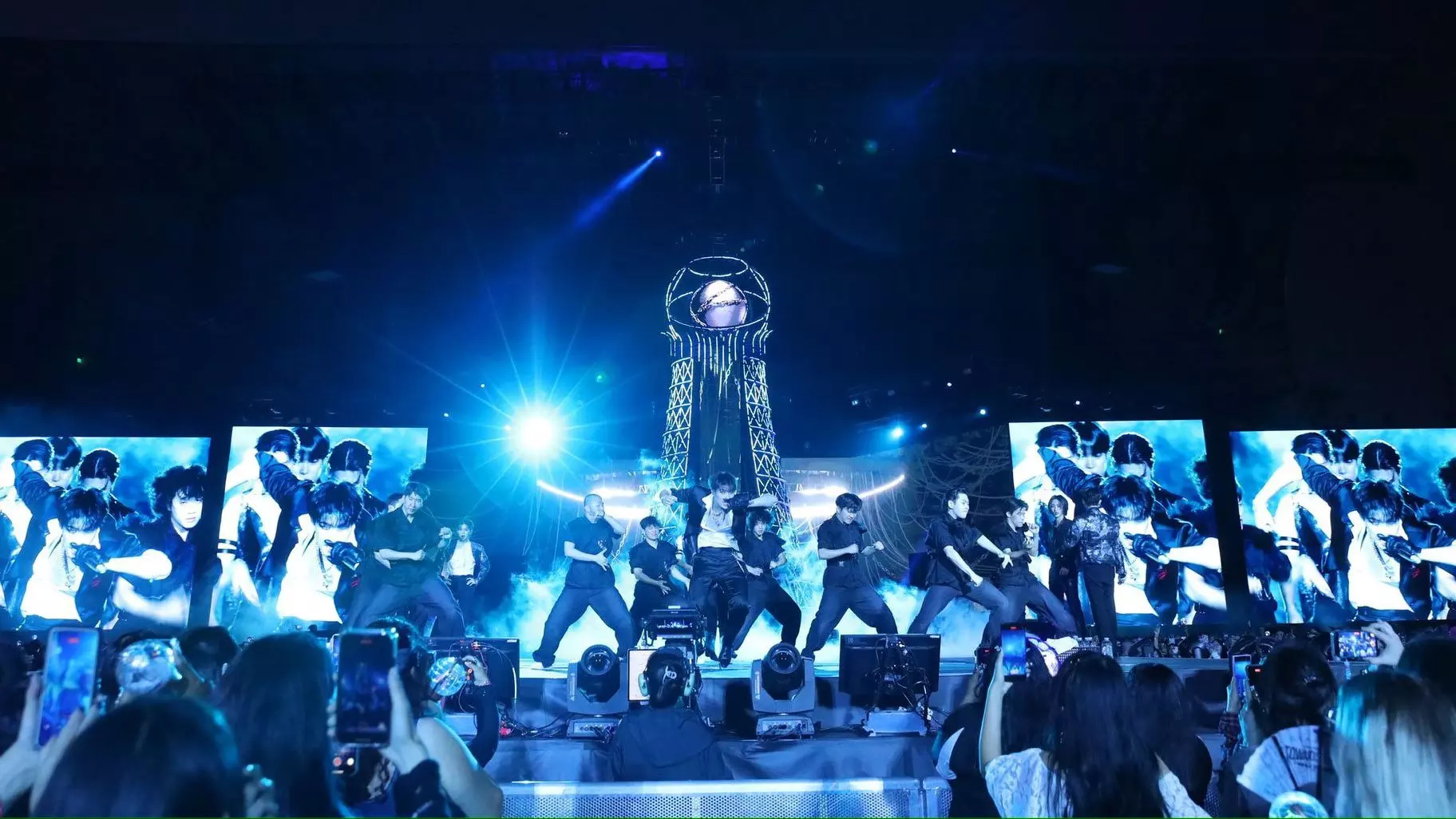
ATEEZ’s First U.S. Stadium Show Was A Triumph & Testament To Their Growth

Matthew West Performs “Don’t Stop Praying”
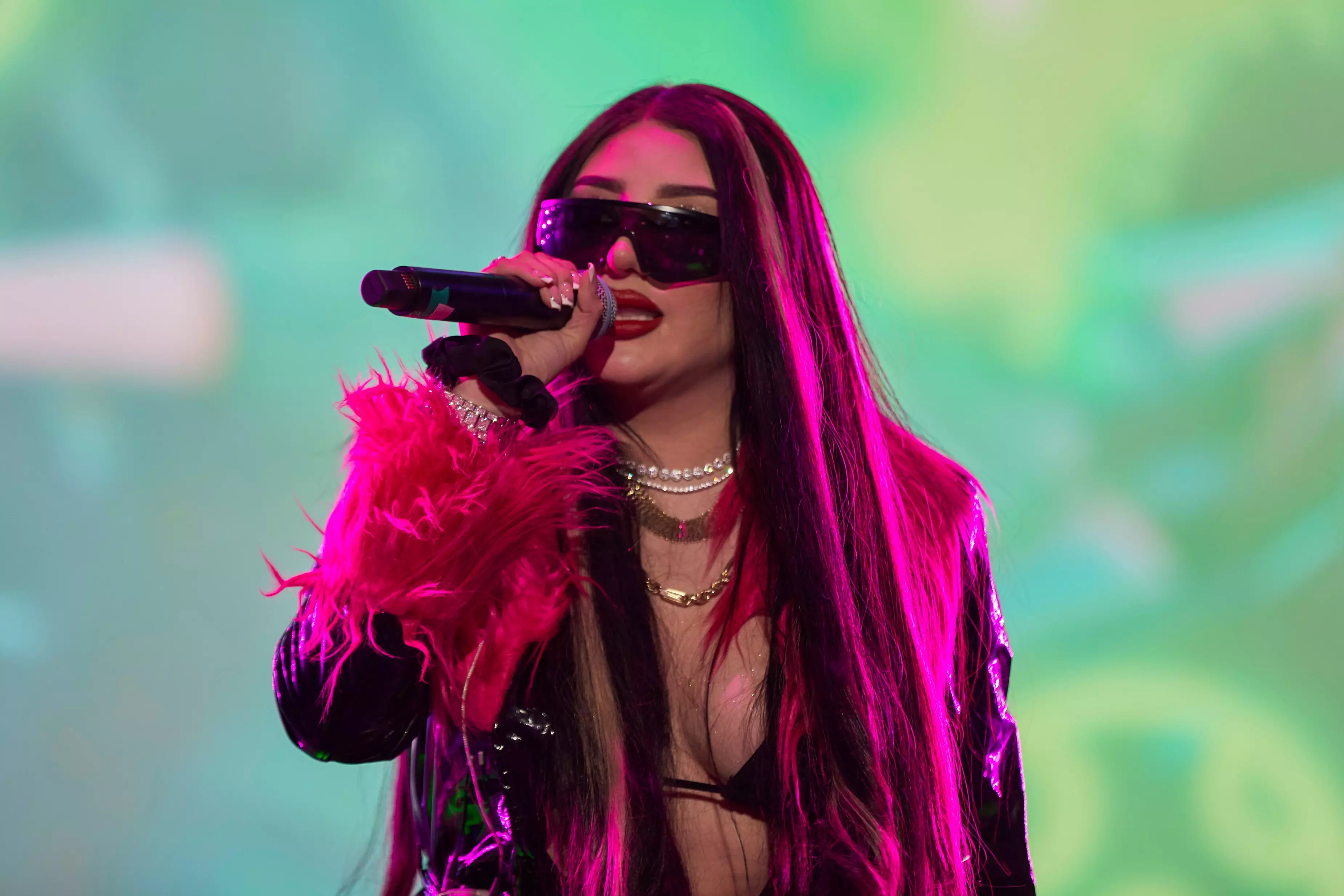
7 Artists Bringing Reggaeton Mexa To The World: El Malilla, Bellakath & More
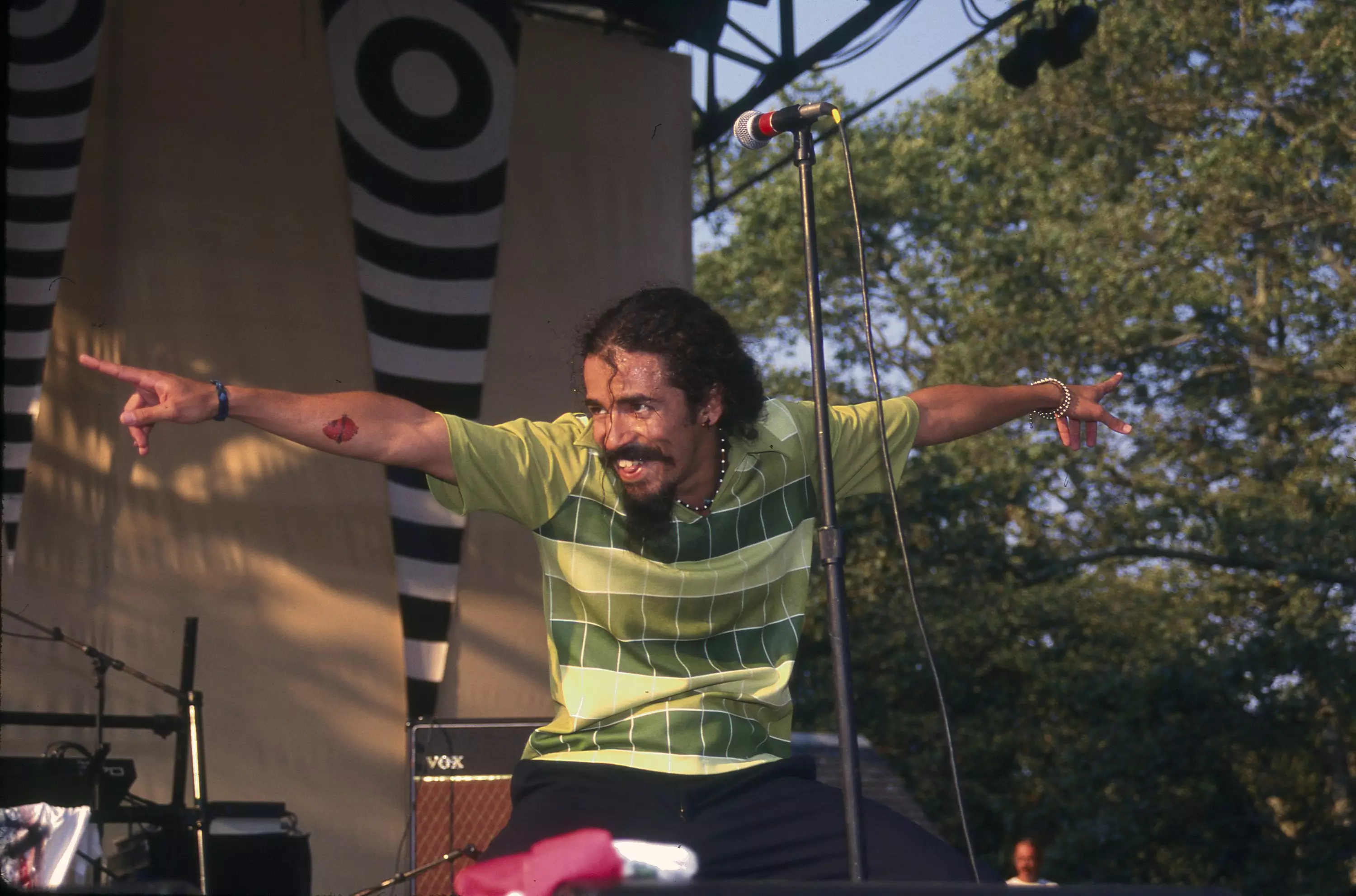
Revisiting 'Re': How Café Tacvba’s 1994 Masterpiece Changed Mexican Music Forever

5 Artists Who Graduated From GRAMMY Camp: Chappell Roan, Maren Morris, Blu DeTiger & More
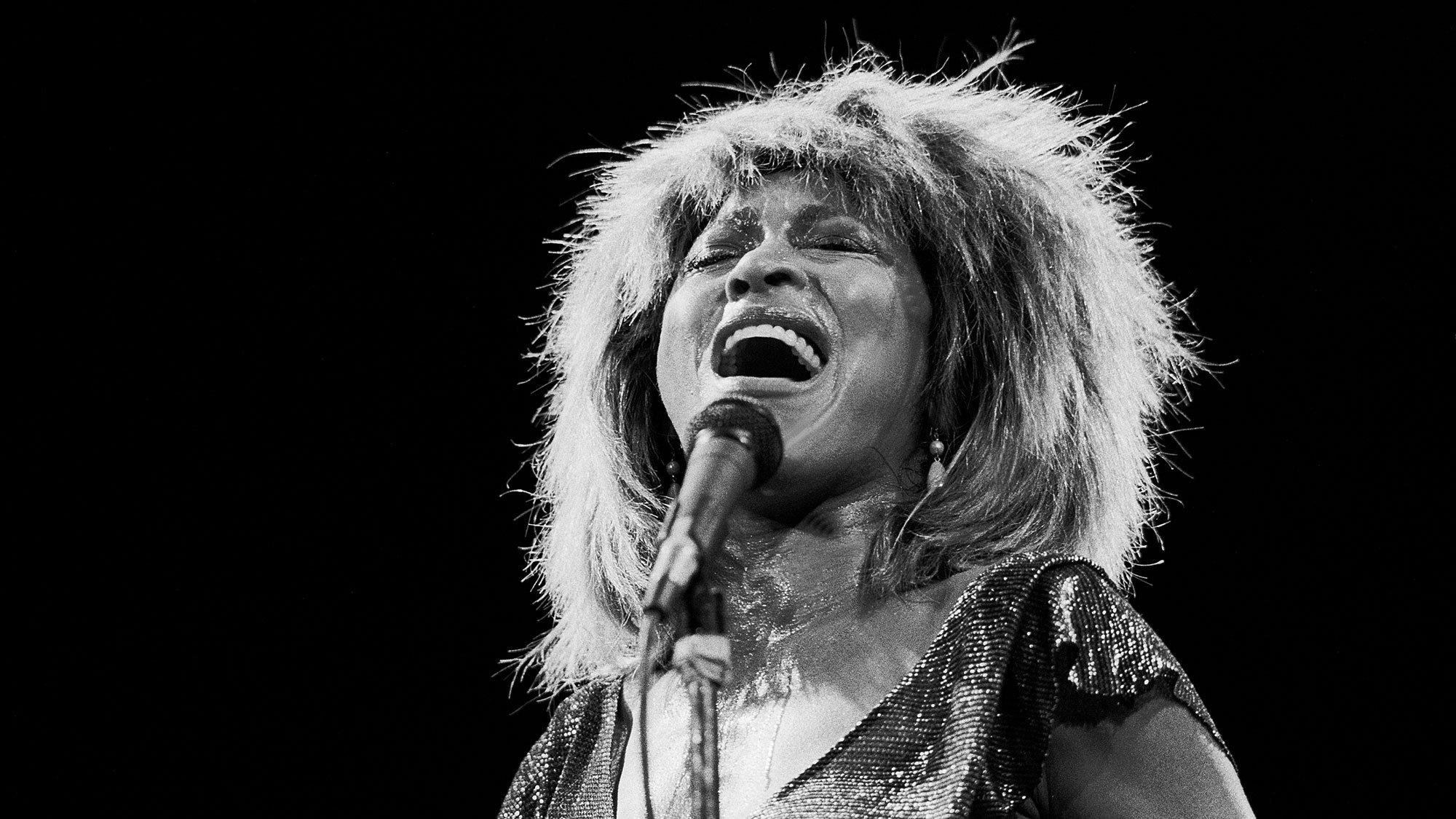
Photo: Paul Natkin/GettyImages
feature
Revisiting ‘Private Dancer’ At 40: How Tina Turner’s Liberation Album Remains A Musical Salvation
Released in May 1984, ‘Private Dancer’ was a musical tour de force. The record saw Tina Turner shed her assured vocal talents, exposing some fragility while adding in some sultriness too, to share a powerful tale of finally finding liberation.
“How it all came about was a miracle,” says Terry Britten, the co-writer and producer of Tina Turner’s “What’s Love Got To Do With It.”
The enduring single on Turner's 1984 album Private Dancer, released 40 years ago this month, was the songstress' ultimate emancipating act. It liberated her from the strictures of a music career bound to former husband Ike Turner, and debuted a new, self-possessed persona that highlighted her own rich talents as a solo artist. Decades on, the album remains a searing testament to resilience and the power of raw, honest expression.
Private Dancer, her fifth solo outing, was the beginning of Turner's renaissance and next era. Still, some of its most powerful songs — including “What’s Love” — almost didn’t make the cut. In fact, the song’s woeful quality and halted vocals proved an obstacle for Turner.
“After all this time, I’ve realized what the problem was and why she didn’t like it: because she was so damn vulnerable in it,” Britten tells GRAMMY.com. “She’d never been that vulnerable before in a song.”
Turner had long wrestled with her public image and allowing listeners into her inner world. Despite her success in the '70s and the subsequent 1976 breakdown of her abusive marriage to Ike (which left her penniless), followed by less successful Las Vegas revue shows, Turner was wary of conceding defeat.
Her career revival was largely born after Turner had made a cameo appearance in 1982 on the synth-inspired remake of The Temptations' “Ball of Confusion.” Masterminded by pop band Heaven 17’s Martyn Ware, the song netted Turner a singles deal with Capitol Records. Her next pairing with Ware, a remake of Al Green’s “Let’s Stay Together,” was a runaway success, charting at number six in the UK and No. 26 on the Billboard Hot 100, in late 1983 and early 1984 respectively.
Chart success had eluded Turner for years, so by February 1984 Capitol quickly demanded a full album — with two weeks to deliver it. With Turner already on tour in the UK then, her manager, Roger Davies, raced around London seeking potential tracks. Davies had been old friends with Britten back in Australia, and reached out about available songs.
Co-written with Graham Lyle, Britten's "What’s Love” had been skipped over by British rock singer Cliff Richard. Its rumination on sexual over romantic desire awaited a new voice.
Turner's powerhouse vocals gave the track the justice it so called for. Just as her vocal prowess was put on display, "What's Love" also underscored Turner's ability to bring both fragility and sultriness to a song. The combination would soon propel Turner to worldwide domination.
In the studio, Britten leaned on Turner’s dancing background to make the meditative ballad work. Turner struggled with the song’s languid rhythm, so Britten suggested she jog on the spot. “We jogged at the mic,” he says. “Soon enough, she got it!”
Britten believes “What’s Love” showed Turner, for the first time, how empowering vulnerability could be. “She realized she could act out these songs,” he reflects. “The whole direction of her career changed in that moment.”
Released in May 1984, “What’s Love” slowly scaled the charts, competing for prime position with the likes of Prince’s “When Doves Cry” and Lionel Ritchie’s “Stuck on You.” “What’s Love” ultimately landed at No. 1 in August 1984 — staying there for three weeks — and fast-tracked Turner’s forceful musical renaissance.
The arrival of Private Dancer only galvanized the transformation.
The album was a mixture of old and new, figuratively stitching together a reinvigorated yet still rock ’n’ roll Turner. There were completely new tracks and sounds, like the synth-infused “What’s Love” and spunky, pulsating “Show Some Respect” (another Britten number). Covers of the Beatles’ “Help!” and David Bowie’s “1984,” meanwhile, were reimagined with searching gospel energy and symphonic orchestral strings.
There was an emphasis on storytelling across Private Dancer, with lyrical explorations of respect, love, and desire, paired with Turner’s frayed timbre. “I Might Have Been Queen” was penned by Jeannette Obstoj and Rupert Hine in response to hearing Turner’s life story. From a youth picking cotton in Tennessee to her years as a double act with Ike, Obstoj took Turner’s trying life (and lifelong interest in Ancient Egypt) to craft an earthy narrative textured by stories of grief and self-understanding. The stomping funk result was an anthemic tribute, celebrating Turner as she sang proudly of being a “sole survivor.”
Allowed into Turner’s inner sanctum, listeners could better understand and relate to the singer’s past life — whether these were real stories or imagined tales. Songs like “Private Dancer,” seemingly about a dancer who keeps a firm psychological distance from her job as a means of self-protection, couldn’t help but be tied back to Turner’s former life as the mistreated singing partner to Ike. Turner’s coarse vocals — retelling regret with the ballad “Better Be Good to Me,” or celebrating self-confidence on “Show Some Respect” — underscored her toughness as she sang about respect and recognition.
Tina Turner’s emotional depth and lyrical confessions resonated with critics and listeners, affirming Turner as sensitive, soulful and, above all, an iconic solo artist. The success of the record at the 1985 GRAMMYs only affirmed Turner's status.
Britten, who won two gramophones for his work and joined Turner on stage to collect the GRAMMY for Record Of The Year, said that the audience — there and even at home watching — manifested her three wins that night. “In between introductions, you could hear the whole crowd going, ‘Tina! Tina! Tina!’” he says. “It was like the whole auditorium wanted her to win. In fact, they willed her to win.”
The entire musical project was a frenzied worldwide phenomenon: the confident comeback story of a 45-year-old liberated woman. Private Dancer represents a rare redemption for a female artist over 40 — a script contemporaries have taken cues from.
Madonna enjoyed a return serve with her revealing 1998 spiritual album Ray of Light, a record that saw her achieve renewed commercial success — and perhaps most important to her, critical acclaim. After the abject failure of 2001’s Glitter, Mariah Carey stormed the charts (and GRAMMYs) in 2005 with her confessional but defiant album, The Emancipation of Mimi. Janet Jackson, no longer suffering public shame after the infamous Superbowl incident and finally free to release music under her own label, returned revealing a more mature, reflective artist with 2015’s Unbreakable. Each album privileged some aspect of self-exposure and sonic difference to mount a comeback where audiences were invited in.
Publicly sharing some vulnerability while also celebrating fortitude, continues to enliven the story of Private Dancer — and the listening experience decades on. After Tina Turner's death in 2023, critics reappraised the record and the seismic impact of “What’s Love.” Some said the song was an enduring “call to action” on finding independence, while others concluded that Private Dancer alone “lifted [Turner] into the pop stratosphere.”
The record represents one of history’s greatest musical comebacks. Its emotional depth, paired with a tough if sometimes frayed sound, gave listeners a deeply resonant tale about overcoming.
“She gave me such trust,” Britten says of recording with Turner. “I can’t tell you what a moving experience it was.” With Private Dancer, Turner entrusted listeners with her own vulnerable admissions, many of which continue to resonate and inspire today.
Remembering The Artistry Of Tina Turner, "The Epitome Of Power And Passion"
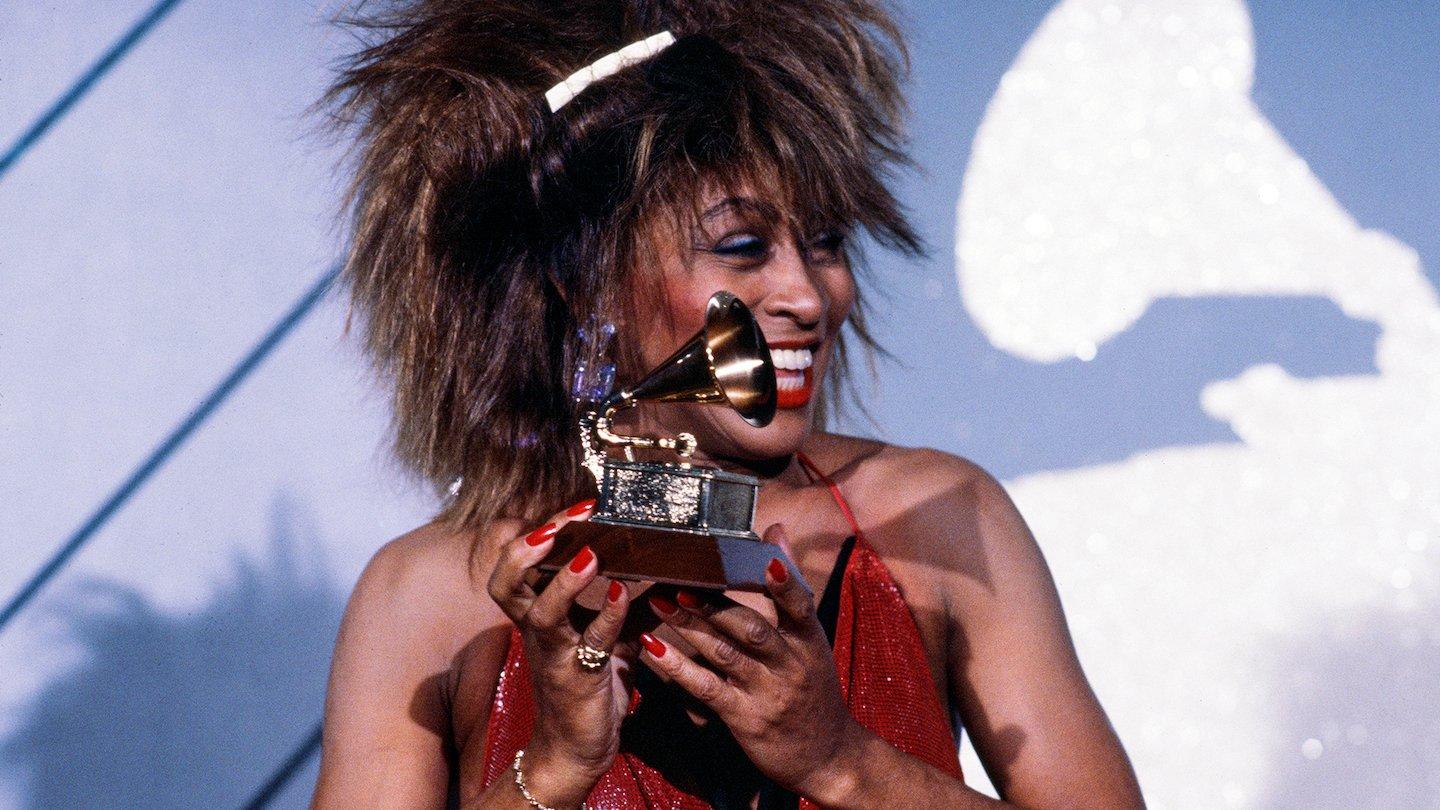
Photo: CBS via Getty Images
video
GRAMMY Rewind: Watch Tina Turner Win Her First Solo GRAMMY In 1985 For "What's Love Got To Do With It?"
Relive the moment Tina Turner won a golden gramophone for Best Pop Vocal Performance, Female — an opportunity she had been waiting for "for such a long time."
During her remarkable 83 years of life, the late Tina Turner received eight GRAMMY awards, a GRAMMY Lifetime Achievement Award, and three introductions into the GRAMMY Hall of Fame.
In this episode of GRAMMY Rewind, we travel to 1985, when Turner won a golden gramophone for one of her many iconic hits, "What's Love Got to Do with It?," in the Best Pop Vocal Performance, Female, category.
"I've been waiting for this opportunity for such a long time," she said in her acceptance speech. "I have to thank many people. And all of you that I don't get to thank, you must know that it's in my mind."
Among those "many people," Turner praised Graham Lyle and Terry Britten, who wrote the track; John Carter, her A&R "who played a wonderful part" in relaunching her career with Capitol Records in the '80s; and Roger Davies, her manager, "a great man who has done a great job with her career."
Later that night, "What's Love Got To Do With It?" helped Turner win Record Of The Year; she also took home Best Rock Vocal Performance, Female, for "Better Be Good to Me." Though the 1985 ceremony marked Turner's first solo awards, she first won a GRAMMY in 1972 alongside her ex-husband, Ike Turner, for their recording of "Proud Mary."
Press play on the video above to watch Tina Turner's full acceptance speech for Best Pop Vocal Performance, Female, and remember to check back to GRAMMY.com for more new episodes of GRAMMY Rewind.
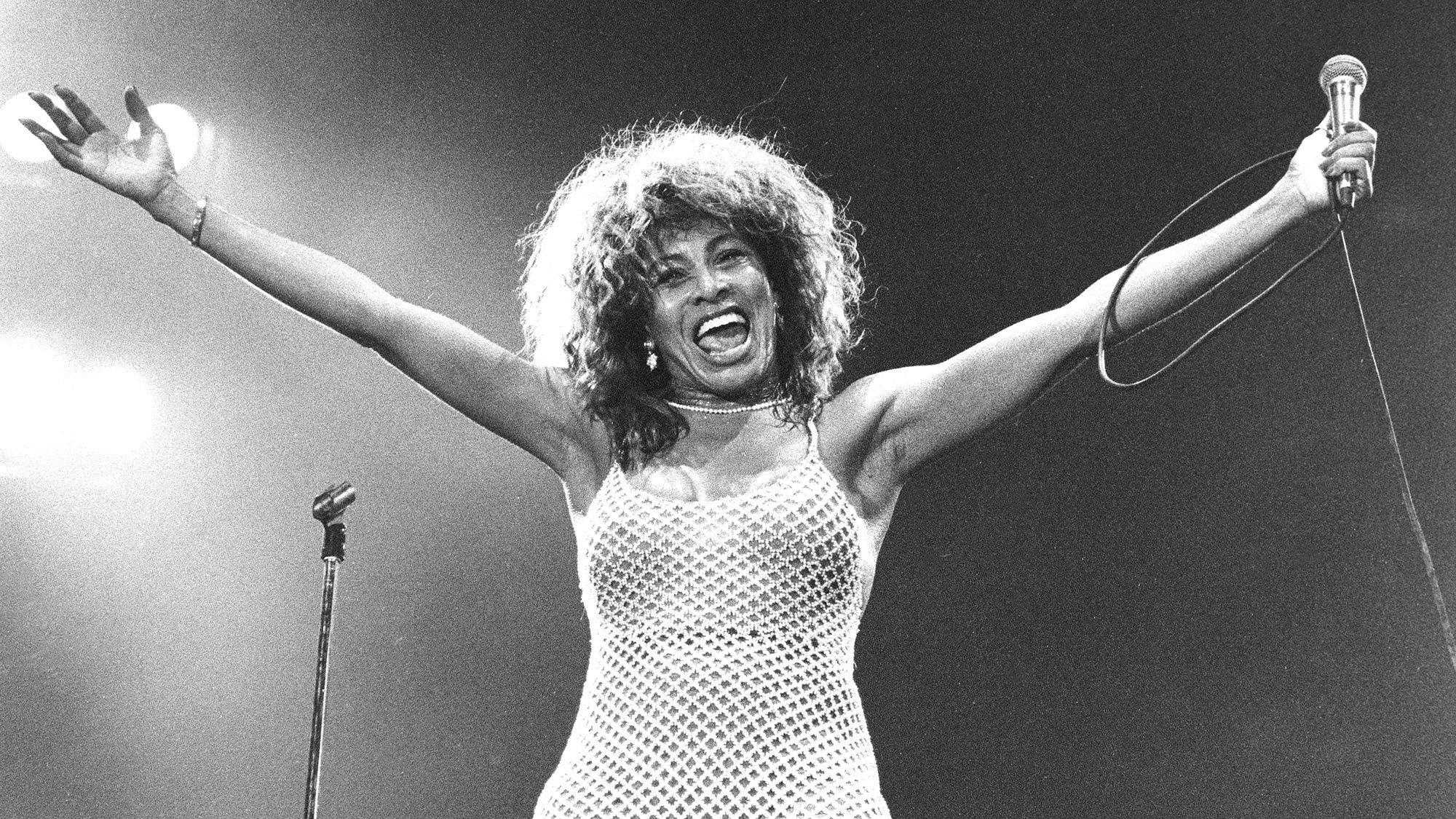
Photo: Dave Hogan / Getty Images Archive
list
In Memoriam (2023): The Recording Academy Remembers The Music People We Lost
Take a moment to salute the members of the music community we lost in 2022-2024.
Below is a tribute to the luminaries and esteemed professionals from the music community we lost between Dec. 5, 2022, through Jan. 26, 2024.
During the 2024 GRAMMYs broadcast, the Recording Academy's In Memoriam segment featured performances by several masterful musicians. Annie Lennox was joined by Wendy Melvoin and Lisa Coleman to honor Sinéad O’Connor. Stevie Wonder took the stage to pay homage to the legendary Tony Bennett, Jon Batiste honored the "Godfather of Black Music" Clarence Avant and Fantasia Barrino paid tribute to the Queen of Rock 'n' Roll, Tina Turner. The performances were set against a video homage of several of the distinguished figures on this list. Every individual who passed away before the publication date has also been respectfully commemorated in the official 2024 GRAMMYs program book.
The Recording Academy offers its profound respect and appreciation for the unique gifts and enduring contributions these individuals have bestowed upon our culture and collective spirit.
Abe Stoklasa
Adam Johnstone
Aérea Negrot
Akbar Golpayegani
Alan Arkin
Alan Niederland
Alan Rankine
Alan Warner
Alan Moore Stowell
Alba 'Albita' Eagan
Algy Ward
Alice Parker
Allen Becker
Alton Wade Kelley
Amos Ettinger
Amp Fiddler
Amparo Rubín
Ana Clara Benevides Machado
Andrew Penhallow
Andrew Speight
Andy Rourke
Angela Zilia
Angelo Bruschini
Anita Kerr
Anne Hart
Annie Nightingale
Anthony Topham
Anthony John Heyes
Anup Ghoshal
Arie Levanon
Arif Cooper
Arthur Ward Eller
Audie Blaylock
August 08
Axali Doëseb
B. Sasikumar
Barbara Bryne
Barrett Strong
Baxter Black
Beeyar Prasad
Ben Lipitz
Benito Castro
Benjamin Zephaniah
Berit Lindholm
Bernie Marsden
Betta St. John
Betty Price
Beytocan
Bhavani Shankar
Bhavatharini Raja
Big Pokey
Big Scarr
John Nelson "Big John" Trimble Jr.
William "Bill" Castle
Bill Humble
Bill Lee
Bill Mayne
Bill Saluga
Bill Zehme
Bill Hayes
Billy Smith
Billy White Jr.
Billy "The Kid" Emerson
Bilqees Khanum
Bishop Carlton Pearson
Blair Tindall
Blas Durán
Blayne Tucker
Bob Burwell
Bob Feldman
Bob Jones
Bob Mummert
Bob Nalbandian
Bob Rice
Bob Siggins
Bob "Norton" Thompson
Bobbi Staff
Bobby Caldwell
Bobby Casey
Bobby Eli
Bobby Schiffman
Bonny Beverley
Brad Houser
Brad Thomson
Bram Inscore
Brandon Marcel Williams
Brett Radin
Brian McBride
Brian "Brizz" Gillis
Bridgette Wimberly
Broderick Smith
Bruce Guthro
Brucene Harrison
Bruno Ducol
Buddy McNeill
Burt Bacharach
C-Knight
C.J. Harris
Calton Coffie
Calton Coffie
Calvin Newton
Canelita Medina
Canisso Canisso
Care Failure
Carl Pagter
Carl Tovey
Carla Bley
Carlee Ann Vaughn
Carlin Glynn
Carline Smith Wilhite
Carlos Fonseca
Carlos Lyra
Carmen Jara
Carmen Xtravaganza
Carole Cook
Catherine Christer Hennix
Cayle Sain
Cecilia Pantoja Levi
Chabelita Fuentes
Chad Allan
Chaim Topol
Charline Whillhite
Charles Gayle
Charlie Dominici
Charlie Gracie
Charlie Monk
Charlie Robison
Chas Newby
Chick Rains
Chico Novarro
Choi Sung-Bong
Chris Ford
Chris Ledesma
Chris Lee
Chris Peluso
Christy Dignam
Chuck Flood
Chuck Jackson
Chuck Morris
Charley Morris
Clarence Avant
Clarence Barlow
Claude Kahn
Clay Hart
Cliff Fish
Clifton Oliver
Clint Yeager
Cobi Narita
Coco Lee
Colette Maze
Colin Burgess
Conny Van Dyke
Costa Titch
Craig Burbidge
Craig Hayes
Curtis Fowlkes
Cynthia Haring
Dan Lardner
Daniel Bourgue
Daniel Jones
Daniel Lee Stephen Jones
Danny Kaleikini
Danny Schur
Danny Milhon
Dave Cohen
Dave Dickerson
Dave Roe
Dave Freeman
David Drozen
David LaFlamme
David McCallum
David Soul
David Lumsdaine
David Beckwith
David Jude Jolicoeur
Dedi Graucher
Del Palmer
Denis Badault
Denyse Plummer
Dev Kohli
Dick Biondi
Dickie Harrell
Dima Nova
Dino Danelli
DJ Casper
DJ Deeon
DJ Dino Calvao
Djalma Corrêa
Don Graham
Don Kissil
Don Mulkey
Don Williams
Donnie McKethan
Dorian Kweller
Dr Latozi Madosini Mpahleni
Duane Tabinski
Dusty Street
Dwight Twilley
Ed Stone
Ed "Beanpole" Efaw
Edino Krieger
Edward Sexton
Edward Walters
Edward "Kidd" Jordan
Elayne Jones
Eliud Treviño
Ellen Fitzhugh
Elliot Goldman
Eloise Wyatt Russo
Emahoy Tsegué-Maryam Guèbrou
Enrique "Zurdo" Roizner
Eric Boehlert
Eric Shoutin' Sheridan
Eric Moyo
Eric Alan Livingston
Essra Mohawk
Fallece Marilú
Faye Fantarrow
Fito Olivares
Florence Malgoire
Fran La Maina
Francesa Cappucci
Francis Monkman
François Glorieux
Frank Harlow
Frank Kozik
Frank Solivan Sr.
Frank Woodard
Frank Ford
Frank Farian
Freddie Ross Hancock
Fuzzy Haskins
Gabriele Schnaut
Gangsta Boo
Garry Mapanzure
Garry Lee Rentfro
Gary Hobish
Gary Rossington
Gary Smith
Gary Wright
Gary Young
Gennady Gladkov
George Logan
George Maharis
George Moffett
George Newall
George Portz
George Tickner
George Yanok
Georgia Holt
Gérard Drouot
Germano Mathias
Glen "Spot" Lockett
Gloria Belle
Gloria Coates
Goa Gil
Gordy Harmon
Gordy Nichol
Grace Bumbry
Grady Hockett
Graeme Malcolm
Graham Clark
Grand Daddy I.U.
Gregory Brian Wright
Hans Poulsen
Harley Worthington
Harold Childs
Harold Killian
Harold Black
Harry Sheppard
Haydn Gwynne
Heather Dunbar
Heike Matthiesen
Heklina Heklina
Helen Thorington
Henri Duaman
Henry Grossman
Herb Deutsch
Hiroshi "Heath" Morie
Hoppy Hopkins
Horacio Malvicino
Howie Kane
Huey "Piano" Smith
Ian Bairnson
Ian Emes
Ian Tyson
Iasos
Ilanga
Inga Swenson
Ingrid Haebler
Ira Selsky
Irish Grinstead
Irma Capece Minutolo
Irv Lichtman
Isaac "Redd" Holt
Ismaïlia Touré
Ivan "Mamão" Conti
Ivan M. Tribe
J.J. Barnes
Jack Lee
Jack Pruett Jr.
Jack Sonni
Jacqueline Dark
Jaquelyne Ledent-Vilain
Jah Shaka
Jaimie Branch
Jake Marlowe
James Bowman
James Casey
James Harvey IV
James Jorden
James Lewis
James Kottak
James C. "Jimmy" LaRocca
Jamie Reid
Jamie Tiller
Jan Woods
Jane Birkin
Jannis Noya Makrigiannis
Jasmin Stavros
Javier Álvarez Fuentes
Jay Goldberg
Jay Weston
Jay Clayton
Jeff Cook
Jeff Davis
Jeff Heiman
Jeffrey Foskett
Jeremiah Green
Jerry Bradley
Jerry Dodgion
Jerry Fretwell
Jerry Kearns
Jerry Samuels
Jerry Springer
Jerry Whitehurst
Jerry Paul Arnold
Jesus Garber
Jet Black
Jim Boyer
Jim Parker
Jim Sharpley
Jim Vienneau
Jim Ladd
Jim Rae
Jo Mersa Marley
Joanna Merlin
Joaquin Romaguera
Joaquin "Jocko" Fajardo
Joe Fagin
Joe McGuire
Joey Bogan
John Albert
John Beckingham
John Cirillo
John Deyle
John Giblin
John Gosling
John Kezdy
John Lomax IV
John Marshall
John Miller
John Morris
John Regan
John Waddington
John Cutler
John Alexander
John Andrew Tartaglia
John Watson Algee
Johnny Allon
Johnny Fean
Johnny Ruffo
Jon Fausty
Jon Kennedy
Jordan Blake
José Evangelista
Joseph Koo
Joshua Culbreath
Joshua Madsen
Joss Ackland
Jovit Baldivino
Joy McKean
Joyce Bryant
Judy Massey
Julián Figueroa
Julian Sebothane Bahula
Justin Bartlett
Justin Fontaine
K. Neville Garrick
K.J. Joy
Kaija Saariaho
Karaikudi Mani
Karl Berger
Karl Tremblay
Karl F. Dieterichs
Katherine Anderson Schaffner
Kathy Chow
Keiko Okuya Jones
Keith Gattis
Keith Reid
Keith Holzman
Kelly Joe Phelps
Ken Brigham
Ken Fish
Ken Roberts
Ken Calvert
Kendall A. Minter
Kenneth Anger
Kenneth Force
Kenneth Montgomery
Kent Stax
Kevin Fleming
Kevin Lemons
Kevin "Geordie" Walker
Kihnu Virve
Kim Simmonds
Kirk Arrington
Kirstie Alley
Klee Benally
Kwame Brathwaite
Kyle Jacobs
Ladislav Jásek
Lance Reddick
Larry Chance
Larry Morris
Lasse Wellander
Laura Lynch
Lawrence "Larry" Cohn
Lázaro Valdés
Lee Berk
Lee Purkis
Lee Rauch
Leela Omchery
Lefty SM
Leiji Matsumoto
Len Chandler
Lena McLin
Lenka Hlávková
Leo D. Sullivan
Leonard Abrams
Leonard Zinn
Leroy "Black Stalin" Calliste
Les Brown Jr.
Leslie Jordan
Lewis Largent
Lewis Spartlan
Lewis Pragasam
Lily Afshar
Linda de Suza
Linda Lewis
Lisa Roy
Lisa Marie Presley
Lisandro Meza
Lisl Steiner
Liz Thiels
Lizeta Nikolaou
Lois Curtis Shepherd
Lola Mitchell "Gangta Boo"
Lola Dee
Lord Creator
Lou Deprijck
Loyal Jones
Luis Vasquez
Luke Bell
Lyn McLain
M Daud Kilau
Malini Rajurkar
Mam' Sylvia Mdunyelwa
Manana Doijashvili
Mandla 'Mampintsha' Maphumulo
Manny Martinez
Manuel Göttsching
Manuel Castillo Girón
Marc Roy
Marcel Amont
Marcel Zanini
Marek Kopelent
Margaret Josephine Nisbett
Margie Hunt
Margie Sullivan
María Jímenez
Mariana Sîrbu
Marianne Mantell
Marilyn Johnston Blankenship
Mark Adams
Mark Howard
Mark James
Mark Kuykendall
Mark Russell
Mark Sheehan
Mark Stewart
Mark Thomas
Mark Nelson
Marsha Gray Basore
Martha Owen
Martin Duffy
Martin Petzold
Martin Stevens
Mary Weiss
Mary G. Dawson
Mary Jane Thomas
Mary Turner Pattiz
Mason Ruble
Massimo Savić
Matt Alese
Matt Stewart
Maurice Bourgue
Maurice Hines
Max Morath
Mbuya Stella Chiweshe
MC Fats
Megan Terry
Melanie Safka
Melvin "Magoo" Barcliff
Merv Shiner
Michael Blackwood
Michael Keith
Michael Kupper
Michael Leon
Michael McGrath
Michael Parkinson
Michael Snow
Michael John McGann
Mick Slattery
Mikael Maglieri
Mike Reeves
Mike Brown
Mike Taylor
Mike J Rojas
Miki Liukkonen
Mildred Miller
Milo Hrnić
Minneapolis Backyard Punk Show Shooting
Misha K. Hunke
Mo Foster
Mohbad
MoneySign Suede
Monte Cazazza
Moonbin
Myles Goodwyn
Najah Salam
Nancy Van de Vate
Nashawn (Lotto) Breedlove
Neal Langford
Neela Rampogal
Neil Kulkarni
Neville Garrick
Nicholas Lloyd Webber
Niel Immelman
Nihal Nelson
Niko Everette
Nina Matviienko
Nobuyuki Idei
Nora Forster
Norby Walters
Norm Pattiz
Notis Mavroudis
O.S. Thyagarajan
Oladips
Olga Chorens
Ordy Garrison
Orlando Marin
Óscar Agudelo
Otis Barthoulameu
Otis Redding III
Özkan Ugur
Pacho El Antifeka
Pamela Blair
Pamela Chopra
Pansequito
Pat Bunch
Patricia Burda Janečková
Patrick Emery
Paul Cattermole
Paul Desenne
Paul Justman
Paul Prestopino
Paul Woseen
Paxton Whitehead
Pedro Lavirgen
Pedro Messone
Pedro Henrique
Pedro Suárez-Vértiz
Pepe Domingo Castaño
Petch Osathanugrah
Pete Brown
Pete Garner
Peter Austin
Peter Brötzmann
Peter Kowalsky
Peter Luboff
Peter McCann
Peter Solley
Peter Schickele
Phil Quartararo
Phill Niblock
Pilarín Bueno
Pluto Shervington
Polito Vega
Prabha Atre
Pt Vijay Kichlu
Qamar Gula
R.C. Harris
Ralph Gordon
Ramani Ammal
Ramla Beegum
Ramsey Lewis Jr.
Randy Bailey
Randy Meisner
Rashid Khan
Ray Cordeiro
Ray Hildebrand
Ray Pillow
Ray Shulman
Ray Sparks
Raymond Froggatt
Raymond Lumpkin
Red Paden
Rena Koumioti
Renée Geyer
Ricardo Iorio
Ricardo Drue
Richard Davis
Richard Landis
Richard Law
Richard Ross
Richard Gaddes
Rick Froberg
Rick Newman
Rickie May
Rita Hollingsworth
R.L. Boyce
Rob Laakso
Robbie Bachman
Robert Becerra
Robert Black
Robert Haimer
Robert Hicks
Robert Michaels
Robert H. Precht
Robert W. Smith
Robin Tamang
Rock Brynner
Rodney Hall
Rodriguez
Roger Sprung
Roger Whittaker
Rohana Jalil
Rolf Harris
Ron Cornett
Ron Hamilton
Ron Spears
Ron S. Peno
Ronnie Turner
Roseline Damian
Roxie Cawood Gibson
Roy Rifkind
Roy Taylor
Royal Blakeman
Royston Ellis
Russell Batiste Jr.
Russell Sherman
Ryan Siew
Sajid Khan
Sakevi Yokoyama
Sal Piro
Sam Cutler
Sanath Nandasiri
Sandra Butler Truesdale
Sandra Trehub
Sara Tavares
Sarah Schlesinger
Sarah Rice
Scott Johnson
Scott Schinder
Séamus Begley
Sean Martin
Sebastian Marino
Seóirse Bodley
Shahidul Haque Khan
Shane Yellowbird
Shaul Greenglick
Shaun Roberts
Sheila Smith
Sheldon Reynolds
Shoji Tabuchi
Silent Servant
Silvio Berlusconi
Sir David Lumsden
Sixto Diaz Rodriguez
Slim Andrews
Smokey Greene
Soňa Červená
Spot
Stainslaw Radwan
Stan Hitchcock
Stella Stevens
Stephen "tWitch" Boss
Stephen Allen Davis
Steve Harwell
Steve Riley
Steve Skold
Steve Travis
Steve Nelson
Stevie B-Zet
Stuart Margolin
Sudakshina Sarma
Sueli Costa
Sulochana Chavan
Suna Kan
Surinder Shinda
Suzanne Somers
Suzy Frank
Swarup Nayak
Sweet Charles Sherrell
Tamara Milashkina
Tapas Das
Teddy White
Teresa Taylor
Teri Bristol
Terri Nolan
Terry Hall
Terry Thacker
Terry Baucom
Teté Caturla
Thanga Darlong
Theo de Barros
Theresa Reneé Watson
Thom Bell
Thomas H. Lee
Thomasina Winslow
Thotakura Somaraju
Tim Bachman
Tim Stacy
Tim Rogers
Tim Norell
Tina Turner
TJ De Blois
Tohru Okada
Tom Langdon
Tom Leadon
Tom Verlaine
Tom Whitlock
Tom Wilkerson
Tom Mazzetta
Tony Coe
Tony McPhee
Tony Oxley
Tony Clarkin
Torben Ulrich
Toru Mitsui
Toto Cutugno
Treat Williams
Treva Chrisco
Trish Williams Warren
Troy Brammer
Tshala Muana
Vakhtang Kikabidze
Valentin Gheorghiu
Van Conner
Varnell Harris Johnson
Victor Pikayzen
Victor Rasgado
Vilayil Faseela
Vince Hill
Violeta Hemsy de Gainza
Virginia Zeani
Vivian Trimble
Vivian Williams
Vivienne Westwood
Walt Wilson
Walter Aipolani
Walter Arlen
Walter Charles
Walter Cole Darcelle XV
Walter Ulloa
Walter "Wolfman" Washington
Wayne Swinny
Wee Willie Harris
William "DJ Casper" Perry Jr.
Willie Ruff
Willis Spears
Yaacov Bergman
Yehonatan Geffen
Yitzhak Klepter
Yogesh Vaidya
Yotam Haim
Young Capone
Yukihiro Takahashi
Yuzo Toyama
Yvonne Přenosilová
Zahara
Zdenek Macal
Zita Carno
